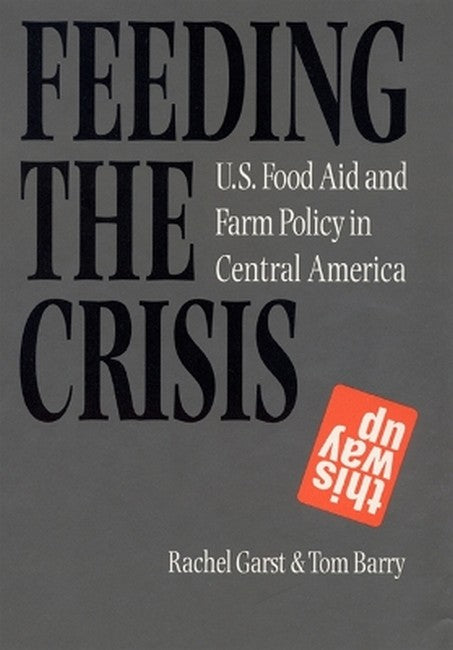"The book provides a clear and concise review of U.S. legislation on food aid and farm policy; it summarizes well the debate over food self-sufficiency versus 'comparative advantage' in agricultural trade policy for underdeveloped countries; it provides insights into the counter-insurgency strategy for the Reagan and Bush administrations in Central America; and this list far from exhausts the contributions."_John Weeks, Journal of Latin American Studies "As a white paper Feeding the Crisis is an important contribution to the field; its recommendations are thoughtful, insightful, and worthy of lengthy debate in the U.S. Congress, in colleges and universities, and among a general audience."--LaMond Tullis, author of Lord and Peasant in Peru: A Paradigm of Political and Social Change. Since 1980 the United States has increased tenfold its shipments of food to Central America. Supposedly, tis humanitarian aid has alleviated social turmoil and economic underdevelopment in Central America. But has it really been in the best interests of the people it was intended to assist?After nearly two years of research that took them to Guatemala, El Salvador, Honduras, and Costa Rica, Rachel Garst and Tom Barry have concluded that U. S. food shipments and assistance in agricultural development are, in fact, feeding the crisis in Central American, hurting rather than helping. The findings of Garst and Barry are disturbing. They discovered that increased U. S. food aid to Central America is being used to achieve short-term foreign-policy objectives that undercut long-term U. S. interests. The authors reveal that, instead of being allocated on the basis of need, U. S. food aid is being used to support military programs; and that it is distorting Central American economies by reducing production of and prices for local crops, by benefitting agribusiness at the expense of small farmers, and by encouraging new consumption habits that neither family incomes nor national treasuries can sustain. For recipient governments, food aid has become a permanent solution instead of an emergency measure. Garst and Barry charge that the Agency for International Development and U. S. Department of Agriculture are partly to blame for this state of affairs.They make detailed recommendations for changes in the way food aid is administered, changes that are urgently needed to stem the negative social, economic, and political effects of programs that until now have largely been shielded from scrutiny. Rachel Garst, a freelance researcher and development consultant, has published analyses of socioeconomic conditions in Central America, where she maintains a residence. Tom Barry, a research analyst at the Inter-Hemispheric Education Resource Center, is the author of Central America Inside Out (1990) and, with Debras Preusch, of The Soft War: Uses and Abuses of U. S. Economic Aid in Central America (1987).

